France
Bottom to top
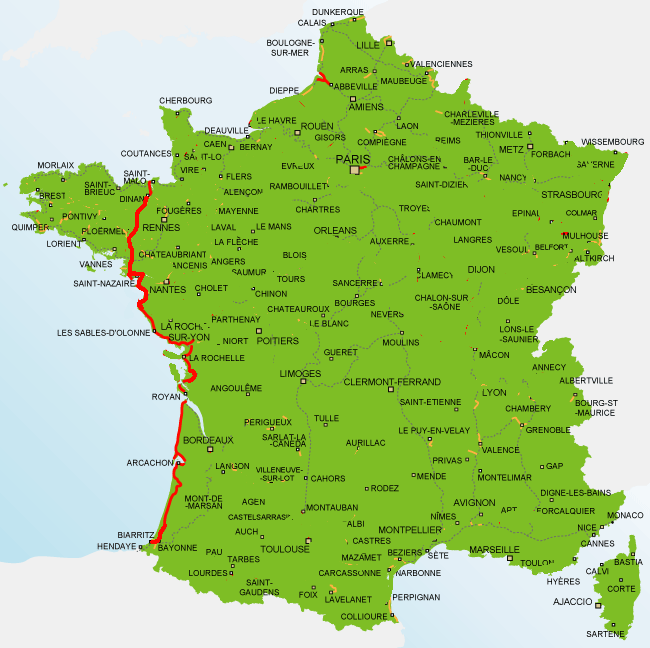
ROUTE SUMMARY
| Day 1 | Airport to Anglet YH | 14 km |
| Day 2 | to Lit et Mix (Chambres) | 88 km |
| Day 3 | to Biscarosse Plage (hotel) | 64 km |
| Day 4 | to Claouey (camp) | 60 km |
| Day 5 | to Maubuisson (mobile home) | 55 km |
| Day 6 | to Soulac (hotel) | 65 km |
| Day 7 | to Rochfort Port (hotel) | 90 km |
| Day 8 | to La Rochelle (YH) | 36 km |
| Day 9 | TRAIN to Rennes (YH) | |
| Day 10 | to Pontorson (YH) | 53 km |
| Day 11 | to St Malo via Le Mont St Michel (YH) | 60 km |
| Day 12 | day ride to Dinan (camp) | 50 km |
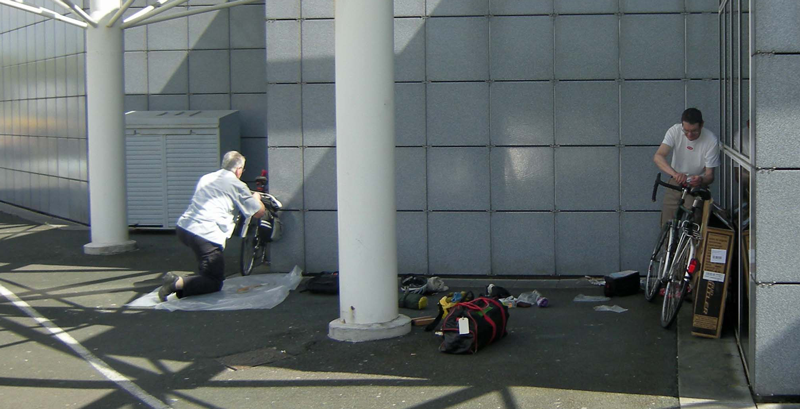
Stage 1 Bayonne / Capbreton 26.8 km
This stage between the Landes and the Basque Country lets us enjoy forests and expansive beaches as we make our way along beautiful cycle lanes. As we approach, Boucau the Vélodyssée enters more urbanised surroundings. Itinerary At Capbreton and Labenne, beautiful greenway and several quiet roads (zone 30). Between Ondres and Bayonne, a trickier route: narrow and uneven surfaces. Between Tarnos and Bayonne, mainly roads, sometimes heavy traffic.
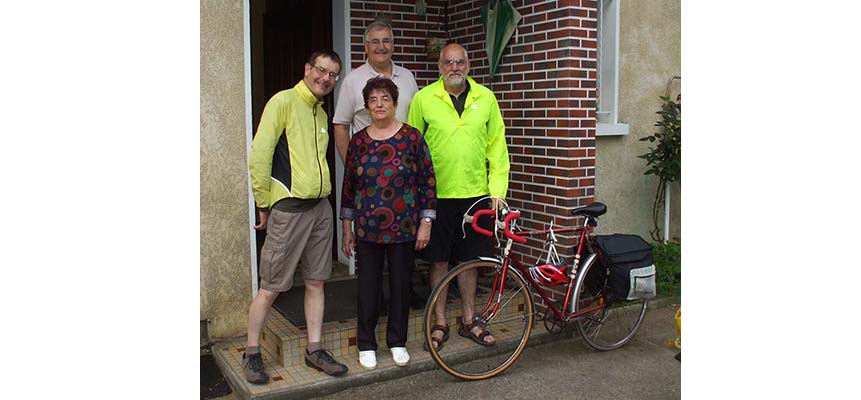
Stage 2 Capbreton / Vieux-Boucau-les-Bains 20 km
Here the Vélodyssée sails past the iconic seaside, surfing, and health resorts of Hossegor and Capbreton. These two towns are separated by the Boudigau and the redirected former Adour River, but their names are linked by their proximity and their huge popularity with tourists in the central areas of the Landes. Itinerary While the feeling of the route is of a small road in the north, the area becomes very urbanised in the southern section. The way is still slightly undulating and the greenway continues, very well signposted and with excellent surfaces.
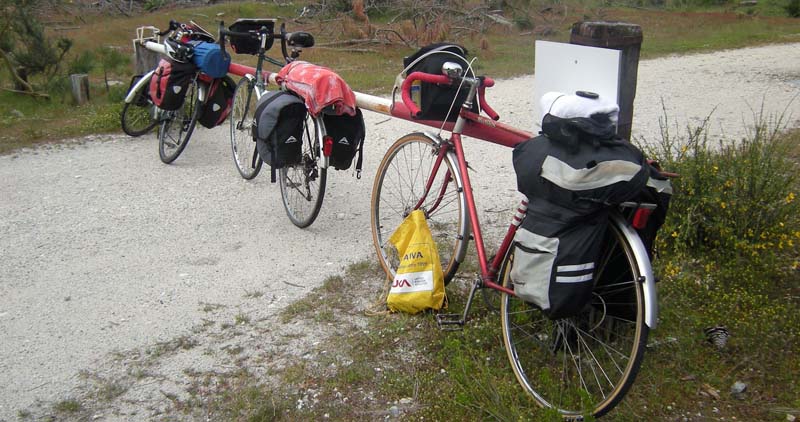
Stage 3 Vieux-Boucau-les-Bains / Léon 13.6 km
The Vélodyssée now heading north, advances to a few hundred yards from the Côte d’Argent, gradually getting closer to Moliets-et-Mâa and Messanges. The route finally meets the powerful ocean at Vieux-Boucau, the former port (until the river Adour was re-routed to Bayonne in 1578) and today a very pleasant stopping point. Itinerary Designated forest lanes. Easy going. Connections Léon beach (3 km round trip). Moliets-plage from Moliets-et-Maa (3 km on the D 117 – very busy in summer). Access to the beach at Messanges via the D 82 (2.7 km). Soustons and its pond (8 km round trip) - then the Vélodyssée intersects with the Courant de Soustons. Leon to Arcachon section 132 km (126 km greenway)
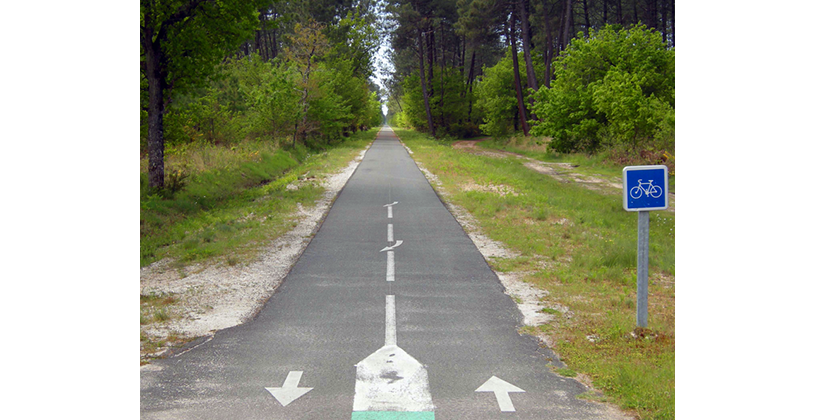
Stage 4 Léon /Contis-Plage 31.3 km
This stage of the Vélodyssée is shaped by the forest, the woodland trail bringing a feeling of peace, reinforced by the fragrant pine trees. You have to leave the trail to enjoy the seaside beaches near Contis-Plage or St-Girons-Plage, or those of the Léon Lake beaches that you come to. Itinerary Cycle lane. Léon is a pretty village - but take care not to get lost.
Who sang 'Lost in France'? It's the worse kind of music worm.
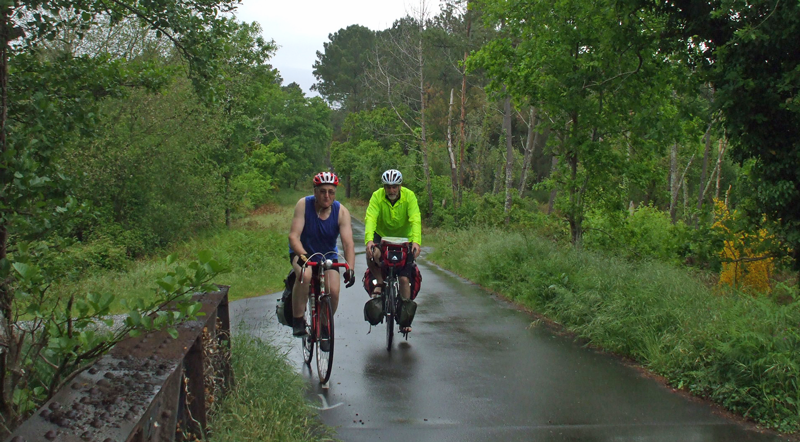
Stage 5 Contis-Plage / Mimizan-Plage 16 km
Having soaked up the atmosphere of the Mimizan-Plage seaside resort, it’s back on the saddle to once more find the inner calm of the forest: its silence and delicate fragrances, with the deep sense of tranquility, and being master of this happy space, far away from the hustle and bustle of the world. The Vélodyssée encourages meditation… Itinerary You cross Mimizan in an urban environment, but the rest of the stage takes place in the middle of the forest sheltered from busy roads.
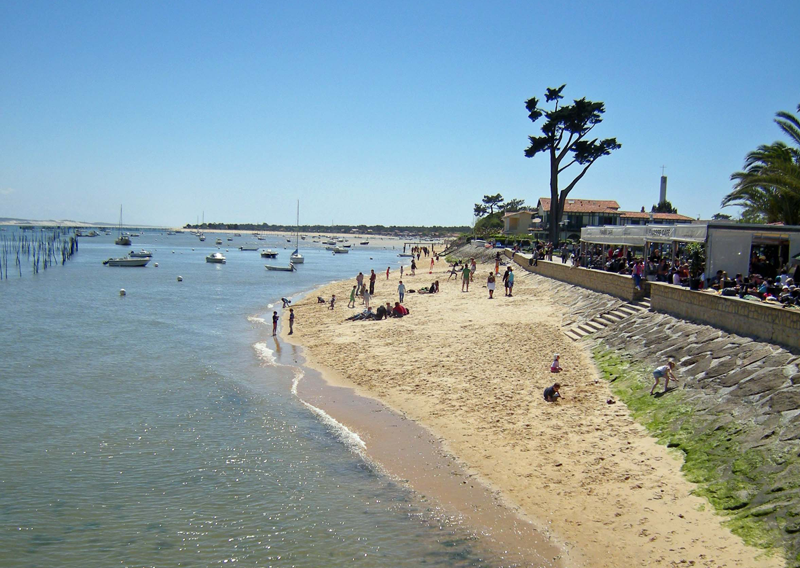
Stage 6 Mimizan-Plage /Parentis-en-Born 31.2 km
After the Biscarrosse and Parentis Lakes, the trail follows secondary roads and takes us to the more secluded northern lake of Aureilhan. Several access paths later, the trail brings us onto the western bank, for a moment of relaxation and a swim on the beach. Itinerary Well marked cycle lane.
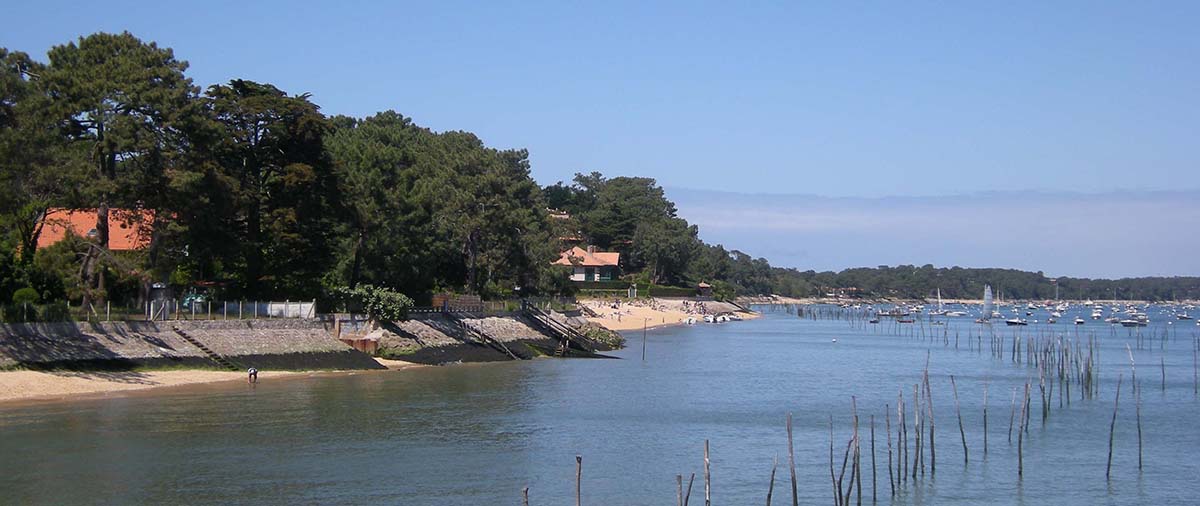
Stage 7 Parentis-en-Born /Biscarrosse-plage 26.1 km
From Gironde to the Landes nothing really changes, apart from the section of military land which forces the Vélodyssée away from the seafront to make a long detour inland, where the blues of the vast ponds replace that of the sea. You may try out the hydroplanes, common to this part of Biscarrosse Itinerary Designated lanes except when crossing Biscarrosse. Uneven surface between Biscarrosse-Plage and the Cazaux Pond and Sanguinet.
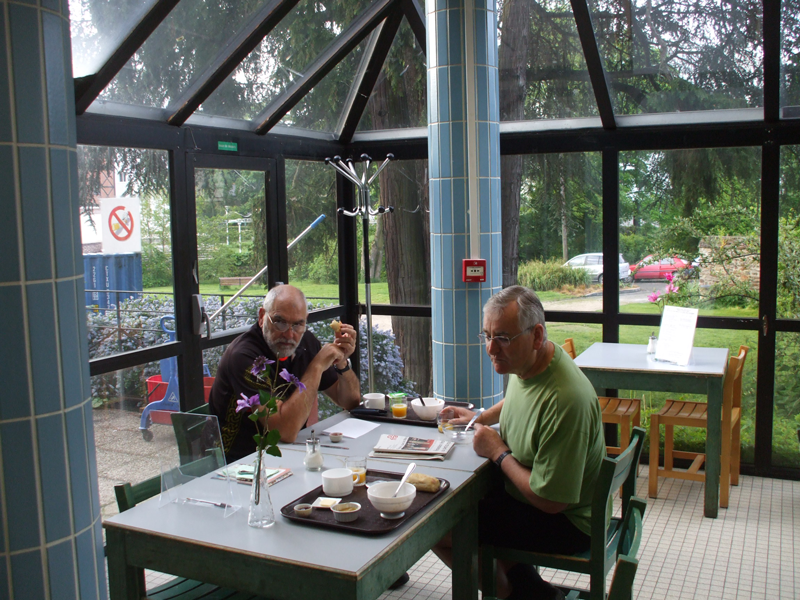
Stage 8 Biscarrosse-plage /Arcachon 25.7 km
After an essential trip to the top of the Dune of Pilat to appreciate the beauty of the area and the views, we once again set off on a long crossing through the Landes Forest. Just before the Biscarrosse-Plage, the Vélodyssée takes you seamlessly from La Gironde into the Landes. Itinerary Designated lane, a little undulating in parts.
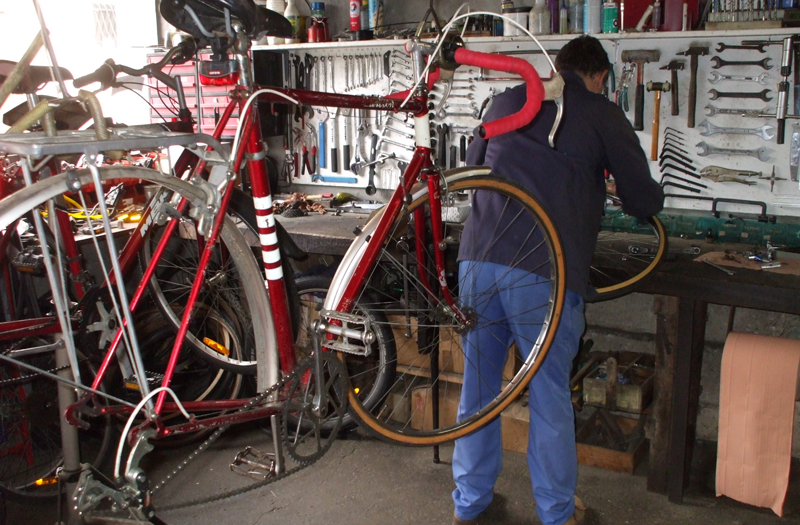
Stage 9 Arcachon / Ledge Cap Ferret 20 km
BEST ROUTE IS TO CAPE FERRET take ferry from Arcachon. (Alt route is round the bay)
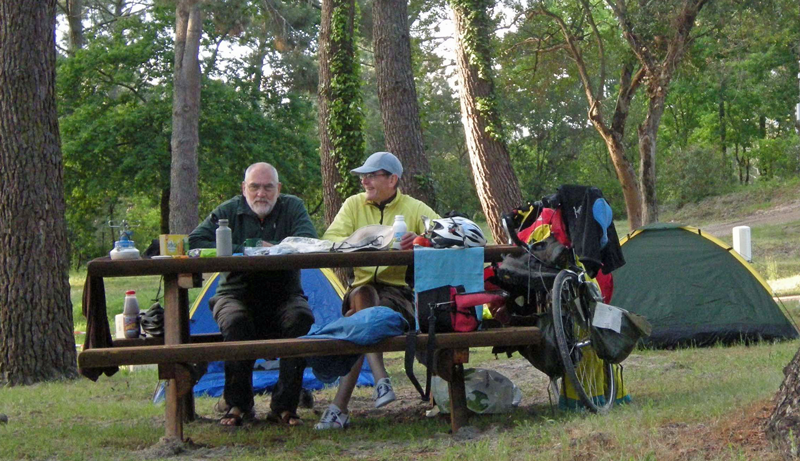
Stage 10 Lège-Cap-Ferret / Le Porge-Océan 22.4 km
You’re never too far from the water as the Vélodyssée follows the coastline, constantly discovering new horizons in the direction of Bassin d’Arcachon Bay. A hugely different atmosphere with a return to the land of oysters. Here we can take a splendid alternative route down the tracks leading to Cap Ferret Itinerary Designated lane along the shoreline in the shelter of the dunes. Connection Towards the natural reserve of the Arès-Lège salt fields. Gironde’s cycle network is very concentrated here, giving several options towards Cap Ferret.
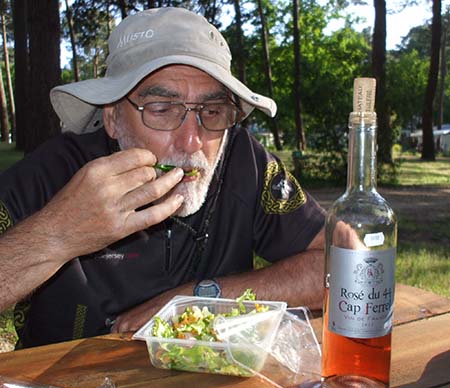
Stage 11 Le Porge-Océan /Lacanau-Océan 14.6 km
A pleasant stage of the Vélodyssée on designated lanes between dunes and the forest. Take time out to stray off the cycle lane and appreciate one of the handful of connections to the sea and enjoy the fantastic ocean views. Take care on the Atlantic beaches! Itinerary On designated lanes. Be aware that a 4 km segment between fire-guards no.64 and 66 has uneven surfaces. Lacanaun to Royan section 82 km (65 km greenway)
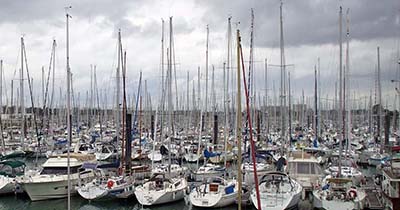
Stage 12 Lacanau-Océan / Hourtin-Plage 31.8 km
Still in the forest and still on cycle paths. The natural reserves encountered throughout the route demonstrate that these large spaces are populated, rich in wildlife and a lot more diverse that we may first think Itinerary The route from Hourtin-Plage to Carcan-Plage is shared with other traffic; the forest route is not very busy. The course crosses several local cycle paths. From Carcan-Plage to the way into Lacanau, the route is on resurfaced designated lanes. The level of difficulty in the dunes is not inconsiderable: it is like cycling along a rollercoaster! Connection Lacanau is easily accessible, with designated, well surfaced cycle lanes. All facilities available.
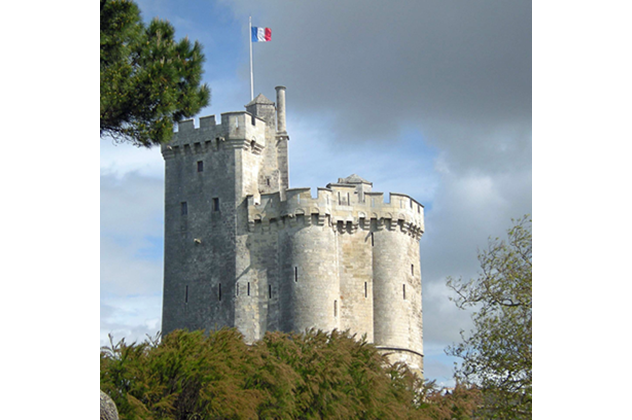
Stage 13 Hourtin-Plage / Montalivet-les-Bains 21 km
The Côte d’Argent truly is the kingdom of cycle lanes. The Vélodyssée follows the central path to meet Hourtin via the forest. The surrounding area offers numerous choices of where you can stop for a refreshing splash in one of the vast lakes, one of which is Hourtin - the largest in France! Itinerary This short, relaxing stage goes through the Landes pine forest on designated cycle lanes: good surfaces and very easy going. Connections Numerous opportunities to rejoin the coastline or visit the lake via interchangeable cycle lanes; the beach at Hourtin is very well signposted, right from the beginning of the main route.
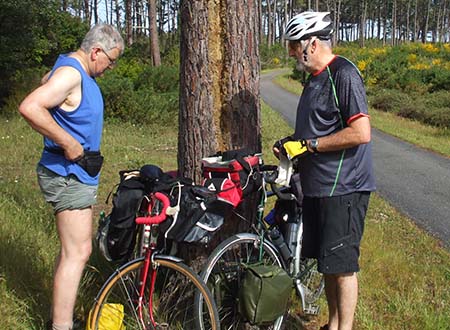
Stage 14 Montalivet-les-Bains /Soulac-sur-Mer/Pointe de Grave 31 km
Itinerary Cross the Royan estuary at the Pointe de Grave: ferry open daily, with several trips in peak season. The cycle lanes are sometimes quite narrow throughout the stage, but there are panoramic views over the Cordouan Lighthouse Royan to La Rochelle 121km (82 km greenway)
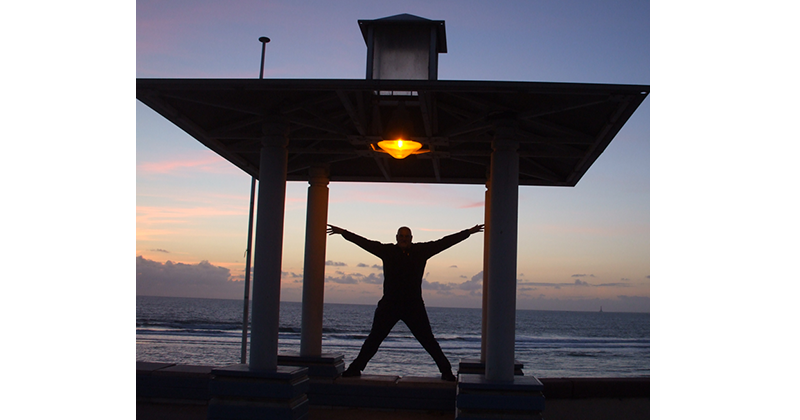
Stage 15 Royan /La Palmyre 15 km
This part of the Vélodyssée is fit for a king, with splendid sea views. Following cycle lanes throughout, it weaves through the coastal forest and array of pretty beaches, one of which is the charming St-Palais, along the coast road to reach the striking cliffs and sandy beaches either side of the beautiful streets of Royan. All you have to do is to catch the boat! Itinerary Family orientated stage, mainly on designated lanes with several small coves. Upon leaving the Palmyre, the route crosses the pine forest to very quickly rejoin the coast: the greenways stretching along the coastline can in places be covered by sand.

Stage 16 La Palmyre / Marennes 31 km
The Marennes Country, home to the leading oyster farms in Europe, spreads over salt marshes and the Seudre estuary. Here cycle paths are numerous and a truly memorable part of the route takes you through the forest of Coubre as the Vélodyssée reaches La Palmyre Itinerary Leave Marennes on a designated track which follows the length of the RD 728E. Take care when crossing the bridge over the Seudre. Cycle lanes continue through the national forest. There is a magnificent track along the section coming into La Palmyre.
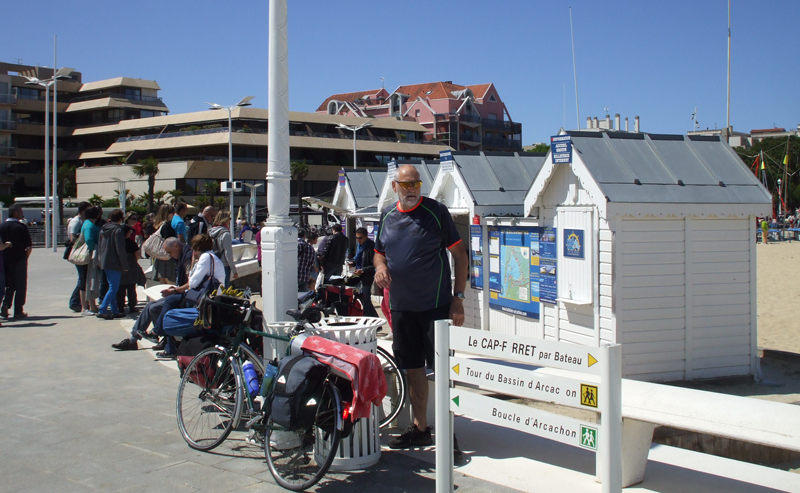
Stage 17 Marennes / Rochefort 37.8 km
It’s with great regret that we leave behind Rochefort and its gardens on the banks of the Charente. We take the former steam-train tracks – now the greenway – and the Vélodyssée meets the marshes, criss-crossed with little channels, before heading onto the oyster centre of Marennes (some sections under construction). Itinerary Exit from Rochefort on roads then it’s almost all cycle lanes up to Tonnay-Charente. Cross this town on roads then take cycle lanes towards Cabariot and the greenway along the former steam-train tracks leading to Saint-Agnant (look out for the fantastic bridge over the Charente). Upon leaving Saint-Agnant there is a greenway along the canal: some parts of this section will have tricky surfaces in the event of heavy rain
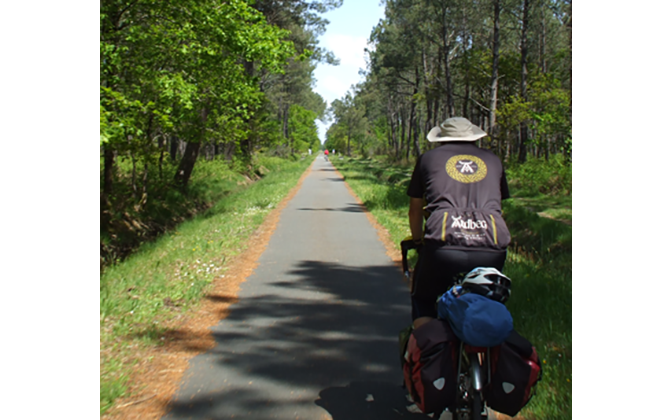
Stage 18 Rochefort / Châtelaillon 23.6km
After the Bay of Châtelaillon comes a pretty seaside section before heading back inland towards the ‘royal city’ of Rochefort. While the middle section of this route might appear somewhat commonplace, the remarkable town of Rochefort is well worth exploring. Itinerary To Châtelaillon, follow a seafront path for several kilometres. Exercise caution on the entrance to the city centre as the lanes are shared with cars. The majority of the following section is on cycle lanes which runs through La route départementale 110 (D110) until it reaches the outskirts of Rochefort. At Rochefort the lanes are shared by general traffic but this is a very pleasant stage to take a break.
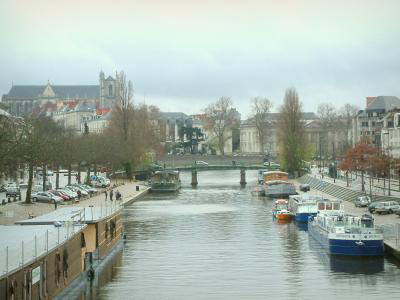
Stage 19 La Rochelle by train to Nantes then on to Rennes
Known as La Ville Blanche (the White City), La Rochelle's luminous limestone facades glow in the bright coastal sunlight. One of France's foremost seaports from the 14th to 17th centuries, the city has arcaded walkways, half-timbered houses protected from the salt air by slate tiles, ghoulish gargoyles and a fabulous collection of lighthouses – all rich reminders of its magnificent seafaring heritage.
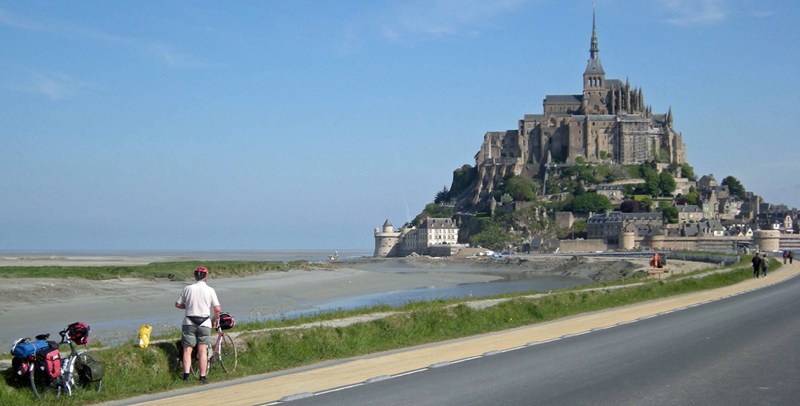
Stage 20 Rennes to Pontorson (nr Le Mont St Michel)
Apart from monuments in and around Paris, Mont Saint Michel is the most visited tourist attraction in France. And it is not difficult to see why. This remarkable medieval walled city, crowned by its great gothic abbey, is built on a small granite outcrop standing all by itself in the flats of the estuary of the river Couesnon, in an area now known as Mont Saint Michel bay. Mont Saint Michel was one of the first monuments to be classed as a UNESCO world heritage site, as far back as 1979.
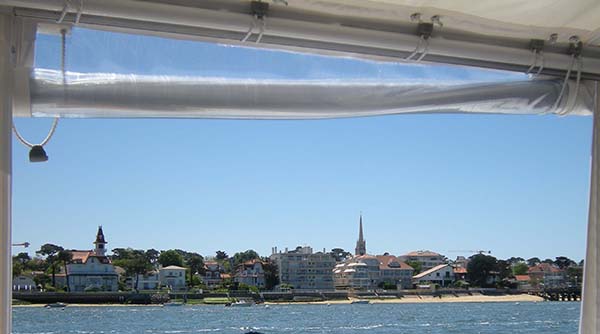
Stage 21 Ponterson / St. Malo 26.8 km
The beautiful city of St Malo in Brittany curves out to sea on a stunning natural harbour that has created some of the best sandy beaches on the Emerald Coast. Rising out of the granite rock, St Malo is a maze of medieval streets bursting with history and culture. The legacy of the dastardly pirates of the 19th century and the siege during the Second World War entwines with the bustling array of arty shops and the delicious smells from restaurants, outdoor markets and cafes, for a romantic atmosphere. Oysters and crêpes are local delicacies to be enjoyed throughout the restaurants and markets of the town.
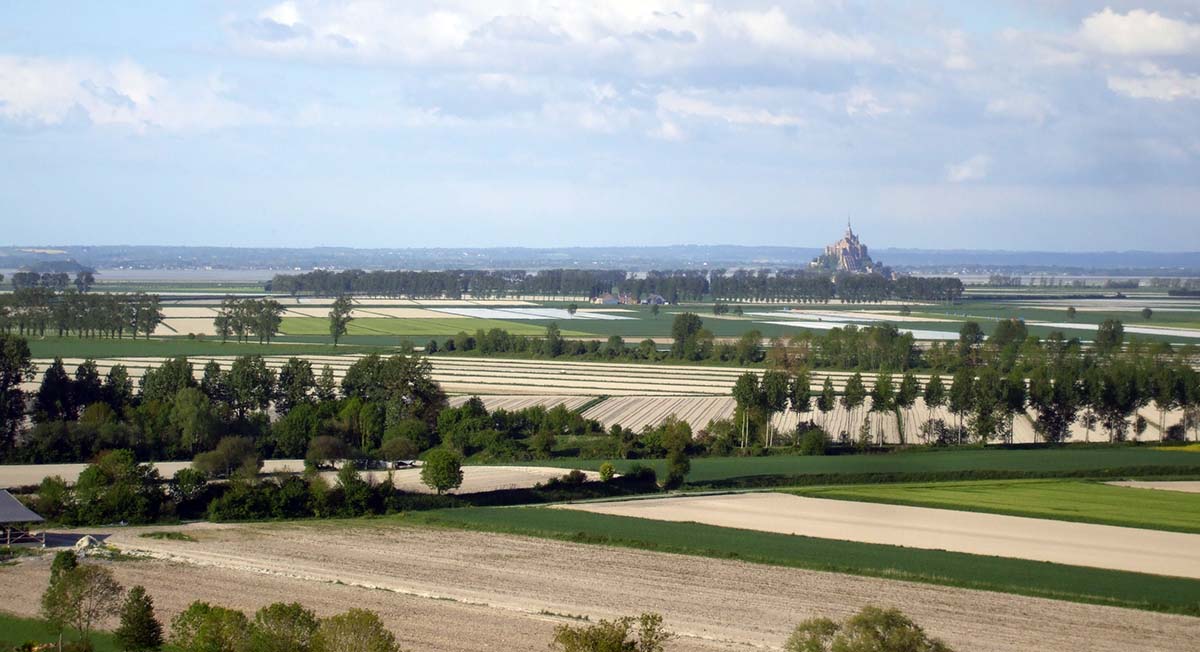
Stage 22
Last overnight stay was St Malo and nice ferry ride across the channel.
We were the only people staying at Poserton YH. Nice town and we got captured by the Goolge street view car